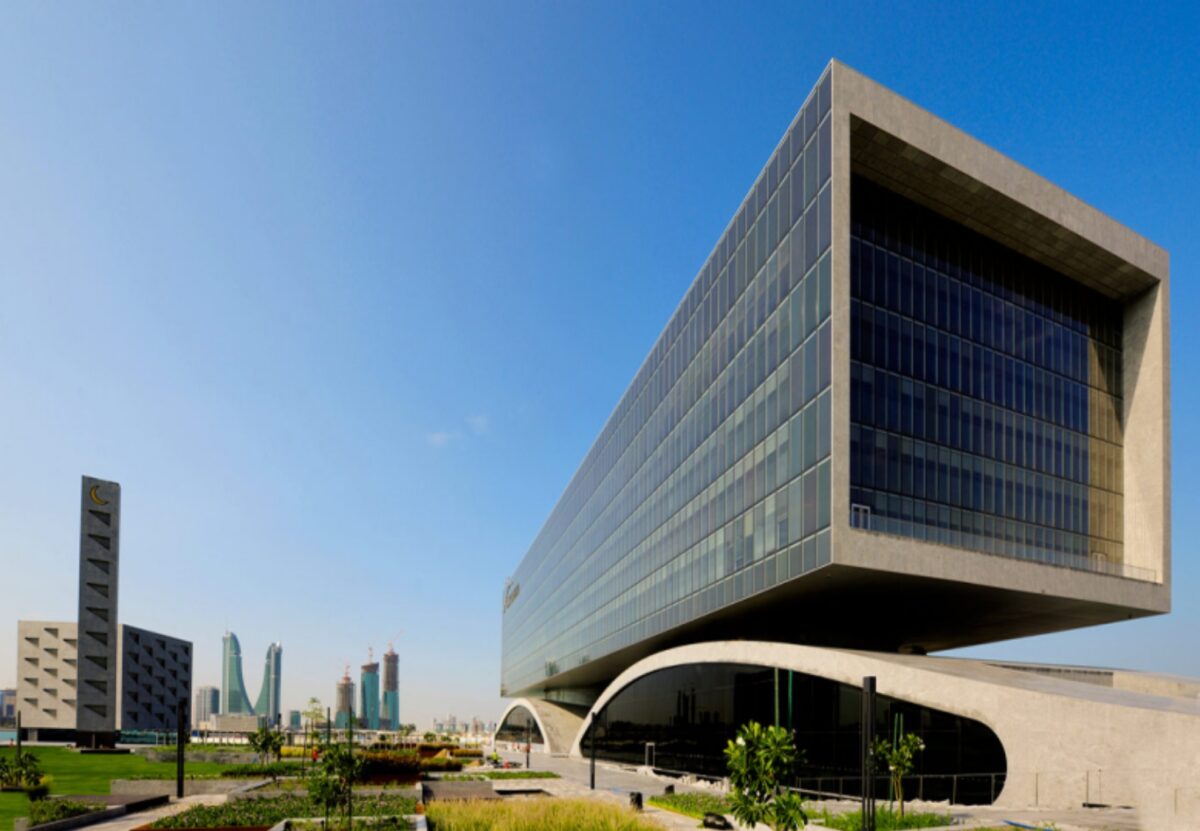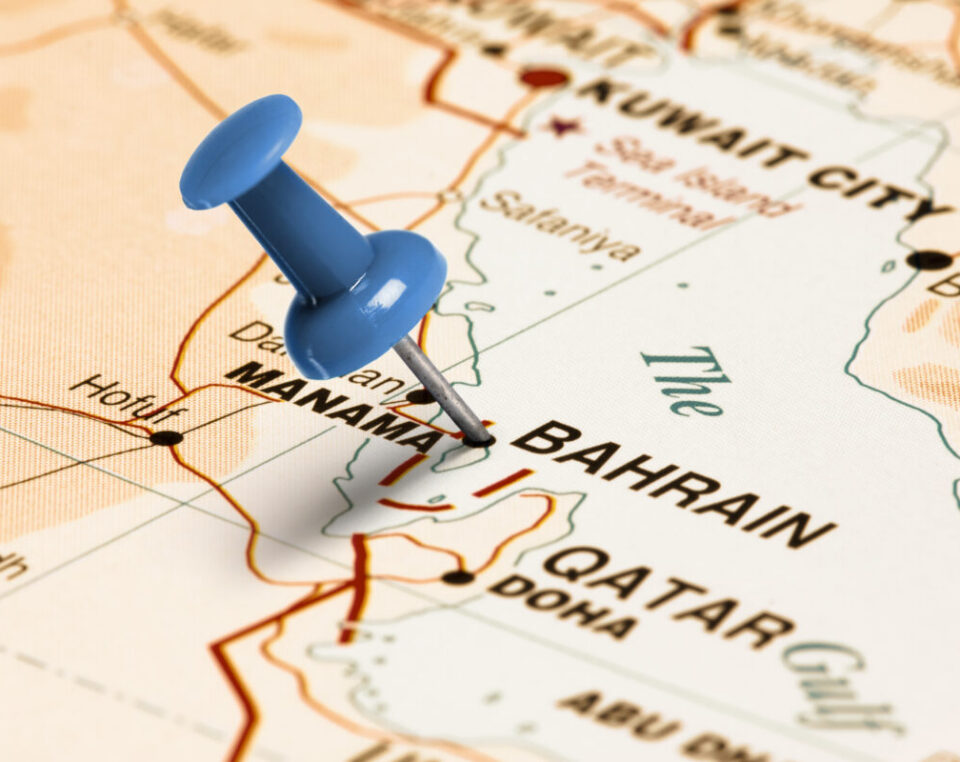Located in the Arabian Gulf, the Kingdom of Bahrain is only a mere 765.3 square kilometres with a total population at over 1.7 million inhabitants, according to 2020 figures from the United Nations (UN). Long revered as the historical hub in the Middle East, particularly for its financial sector, the country has prioritised the sector and been innovative, particularly when fintech came along. Manama is its capital, largest city and financial hub.
According to the Central Bank of Bahrain’s website, Bahrain is home to over 350 licensed financial institutions, representing a rich mix of international, regional and local names. The financial sector is one of the most important non-oil sectors in the Kingdom’s economy, which accounts for over 17% of the Kingdom’s gross domestic product (GDP). The licenced companies cover a full range of financial services, with concentrations and specialities in wholesale banking, insurance and fund and asset management. Bahrain’s banking system consists of both Conventional and Islamic Banks and is the largest component of the financial system, accounting for over 85% of the total financial assets.
The financial sector is one of Bahrain’s largest employing sectors; Bahrainis represent over 66% of the sector’s workforce. Other interesting facts are that, since 2002, the Central Bank of Bahrain has been the single regulator and source for governance in the financial sector; it also is ranked first in the Middle East and Africa (MENA) region for Finance Freedom.

Similar to its other neighbours, Bahrain has its own economic development and diversification ambitions. Part of its wider national strategy, the Economic Vision 2030 was launched in October 2008 by the King of Bahrain, His Majesty King Hamad bin Isa Al Khalifa, is a comprehensive economic vision for Bahrain, providing a clear direction for the continued development of the Kingdom’s economy and, at its heart, is a shared goal of building a better life for every Bahraini. In short, it looks to have an economy by 2030 that will be entrepreneurial, diversified, and with one of strong private sector investments and engagements – to name a few.
Many outside the Gulf Cooperation Council (GCC) region might not be aware of some of the innovative approaches and firsts that Bahrain has done in the financial services and fintech sector. Dalal Buhejji, Director, Business Development – Financial Services at the Bahrain Economic Development Board (EDB), the public agency with the overall responsibility of attracting investment into the Kingdom of Bahrain and supporting initiatives that enhance the investment climate, says, “The importance of financial services for Bahrain’s economy goes well beyond Vision 2030. We were the first GCC country to begin diversification efforts, and much of our success in this regard is owing to our thriving financial services sector. Indeed, it was this deep experience we were able to leverage to build one of the region’s most dynamic and pioneering fintech ecosystems. We built the region’s first onshore fintech regulatory Sandbox, where 32 innovative fintechs from all over the worlds are testing their technologies today.”
Buhejji adds, “COVID-19 has served as a catalyst for digital transformation across a range of sectors, and this is particularly true for financial services and FinTech. But it is worth noting that while the pandemic has served as a catalyst for digitisation across the financial services sector, this was a revolution that was already taking place. Look to banks like Bank ABC, which launched Ila Bank, and National Bank of Bahrain – the first in the region to launch open banking services; look to (Bahrain Islamic Bank) BISB, which launched Bahrain’s first fully digital bank branch, and Meem – the region’s first Shari’a compliant digital banking service.”
The Kingdom began to build the foundation for a vibrant fintech ecosystem through an approach that unified the EDB and Bahrain Central Bank a few years. Besides the first regulatory sandbox, as mentioned earlier, other frameworks and rules for fintech subsectors such as cryptocurrency and crowdfunding were also developed. Through wider collaboration in the community, Bahrain Fintech Bay was also launched back in February 2018. Bahrain FinTech Bay provides a physical hub to incubate insightful, scalable, and impactful fintech initiatives through innovation labs, acceleration programmes, curated activities, educational opportunities and collaborative platforms.
“We are holistic in our value proposition focusing on acceleration, incubation, venture building, advisory services for corporates, awareness, and education, allowing us to address the development of our ecosystem at large. Global and local fintech looking to grow in the region benefit from our expertise, global network, and varied programs, and we are well-positioned to facilitate expansion across MENA whilst simultaneously nurturing our own startups. Our various early and growth-stage accelerator programs offer a unique opportunity to collaborate with our partners in industry and our bespoke venture acceleration program for fintech is focused on business development and scaling across the region,” said Khalid Dannish, the CEO of Bahrain Fintech Bay.
“We are experiencing accelerated growth in the digitalisation of services and the adoption of innovative technology both at a private and governmental level as a response to the global crisis, catering to shifting customer and client expectations across MENA. Fintechs are not also responding with solutions but also pivoting business models to solve these challenges. Bahrain Fintech Bay is committed to enabling these partnerships and strengthening the Kingdom’s digital economy.”

With regards to the pandemic, Dannish adds, “As a direct response to COVID-19, we took the decision early on to launch a series of community lead local challenges and programs around thematic innovation clusters relevant to the adopting technology to address the repercussions of the pandemic and assist economic recovery. The strategy is focused on supporting Bahraini startups and entrepreneurs and we are proud to be working with our partners on unique accelerators, challenges, and incubation programs in the Kingdom. Some of these programs include the Standard Chartered global program SC Women in Tech Bahrain as well as BiSB Tech Minds of Tomorrow, and we are excited to be announcing more programs in the next few months as part of the strategy.”
Besides the examples mentioned earlier, other examples from 2020 from other banks include the following. First, the Euromoney Awards for Excellence 2020, the world’s global financial sector’s most esteemed accolades, gave the ‘The Middle East’s Best Bank Transformation’ to The National Bank of Bahrain (NBB), which also won the award for ‘Bahrain’s Best Bank’ for the second consecutive year. Second, one of Bahrain’s banks, Al-Salam Bank, a Shari’a-compliant Bank, also announced the launch of its new state-of-the-art digital banking app. It will offer a full suite of mobile banking services, including family accounts, digital onboarding, and a comprehensive range of new features.
As what happened with the rest of the world, the rise in digital, which was already a global trend, accelerated during the height of the pandemic back in early and mid-2020. For instance, in Bahrain, BenefitPay, the Kingdom’s national smartphone payments app, surged over 1,000% in usage during the pandemic. As of the end of May it had over 444,000 registered users, around 28% of Bahrain’s population.
Artificial Intelligence (AI) has also been a popular subtheme in the fintech and wider digital space in recent years even before COVID-19. Nevertheless, during the pandemic, it has been playing an important role in fighting the spread of the disease and protecting much of the global population. From Asia in countries like Singapore, South Korea and China to the Middle East such as in the United Arab Emirates (UAE) and Bahrain. For example, there is an application in Bahrain called BeAware. Residents can track proximity to someone with Co-VID 19, using location data alerting people should they approach someone with a known case. Technology such as BeAware help with contact-tracing to help monitor cases with those who might and or are infected.
In terms of companies, there are various examples. First, Payment International Enterprise (PIE), one of the Kingdom’s largest FinTech companies successfully attained the PCI DSS (PCI Data Security Standard) Compliance Certification. PIE has consolidated its position as one of the most secure business enabling platforms in Bahrain with this accomplishment.
In addition, Tarabut Gateway, MENA’s first licenced Open Banking platform has seen banks in Bahrain investing in Open Banking products that are powered by them. It is worth nothing that the company also launched their ‘TG Hub’ in the month of May to give back and empower the community amidst the challenging situation of the coronavirus.
Brinc Batelco, a major Internet of Things (IoT) hub in Manama, has also been active. According to them, “Brinc’s programme and support for startups remained intact during the global pandemic. We continue to support Bahraini and global founders in their journey to de-risking their businesses, establishing product market fit and accessing local and regional markets. COVID-19 has presented an opportunity to expose teams participating in the MENA program to global virtual mentorship sessions across all areas of expertise that support founders in establishing financial viability, market desirability and technical feasibility. The startups also continued to participate in mentor led communication and pitch practices and received extensive training on how to fundraise.
During the programme, the startups interacted with corporate stakeholders, government entities and ecosystem players in Bahrain to secure pilots, clients and partnership while establishing their presence in the Kingdom. Brinc also leverages its extensive expertise with startups, education modules, mentorship networks and services to provide innovative services to corporates. These services support the ability of the corporates to innovate with startup agility. In the area of fintech, Brinc organised a Fintech hackathon for the employees of one of its key partners to develop in house innovative Fintech solutions that culminated in conceptualizing three fintech products in the areas of e-wallets, payments, cryptocurrency and micro investments.”
On a final note, to remember early in 2020 before the changes to our daily lives where events were also cancelled and/or migrated virtual, it is worth remembering that Tamkeen won the ‘Best Governmental Agency of the Middle East Supporting Entrepreneurship’ award at the World Congress World Business Angels Forum (WBAF) 2020 held in Istanbul, Turkey. Tamkeen is a public authority established in August 2006, tasked with supporting Bahrain’s private sector and positioning it as the key driver of economic growth and development.
Despite the challenges of 2020, Bahrain’s fintech ecosystem still had successes to reflect on. It represents the positive spirit and aspirations of the innovations the country has proven in the past and continues to do so in the fintech and wider financial services industry.




